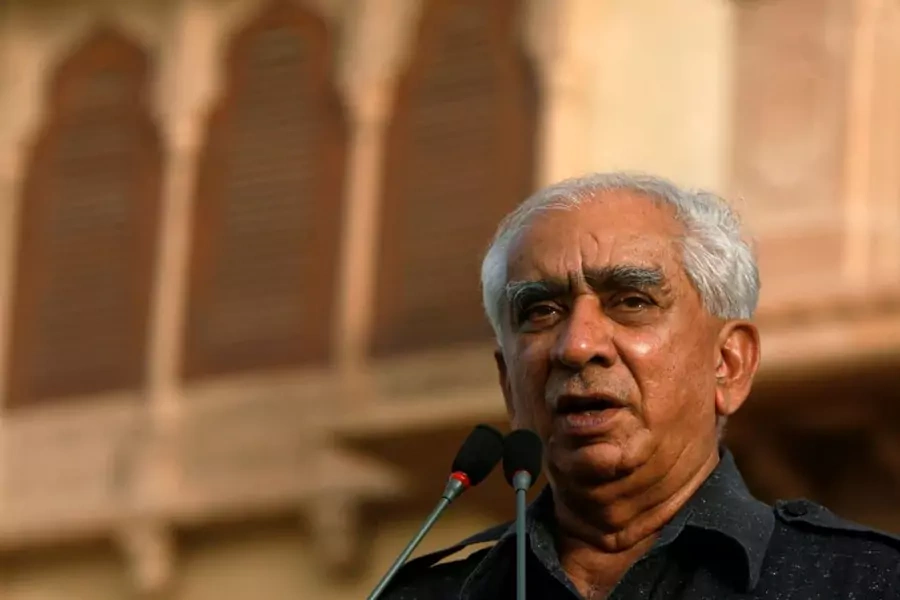Jaswant Singh—A Personal Remembrance

Marshall M. Bouton is president emeritus of the Chicago Council on Global Affairs.
Former Indian Foreign Minister Jaswant Singh, whose service to his country spanned seven decades, passed away in New Delhi on September 27. As an army officer, parliamentarian and Cabinet leader, Jaswant Singh played a central role in India’s diplomacy and national security at a critical time.
More on:
It was my good fortune to meet Jaswant Singh in the mid-1980s and enjoy an association with him through the 1990s when I served as executive vice president of the Asia Society. His grasp of India’s history and destiny impressed me deeply, as did the sense of duty and courage he brought to every role he assumed. Always ready to reach across differences and unfailingly courteous, he was also steely tough in defense of his nation’s interests.
My very first impression of Jaswant Singh was of a former career soldier from a courtly Rajput family likely to be narrowly focused on security issues. But in my visits with him in Delhi and his visits to the United States for the Asia Society, I soon came to appreciate the breadth of his understanding of India’s challenges and potential. These qualities he shared with his political mentor, Atal Bihari Vajpayee, and together they went on to shape a more confident and engaged India as it entered the twenty-first century.
Jaswant Singh’s home in far western Rajasthan together with his career in the military might have suggested a hardline stance toward neighboring Pakistan. He once described the Partition of India to me as a tectonic shift that would generate many aftershocks for both India and Pakistan. But when the opportunity came to help Prime Minister Vajpayee walk a road toward accommodation and peace with Pakistan, Jaswant Singh was by his side.
Only a few months after the prime minister’s historic early-1999 journey to Pakistan in search of improved relations, Pakistani fighters crossed into the Kargil sector of Kashmir and seized critical positions. In his office shortly after India ousted the invaders, Jaswant Singh spoke with evident sorrow of the sacrifice of Indian soldiers that required but made clear he did not view the spurned earlier peace-building effort as futile. Only two years later Vajpayee and Singh launched another effort to engage Islamabad.
In many conversations over the 1990s Jaswant Singh told me that as a major nation India had no choice to become a nuclear-weapons state. A few months before the 1998 elections and May nuclear tests, Jaswant took me to see Vajpayee and encouraged me to ask whether India would conduct a test. When I did ask, Vajpayee, after his characteristically long pause, said yes, India would test.
More on:
Over the following summer, as planning began for an early U.S. visit by Vajpayee, Jaswant asked the Asia Society to host an appearance by the prime minister. In a now-famous September 1998 speech, Vajpayee described India and the United States as “natural allies,” setting the tone for Jaswant Singh’s conversations with then-Deputy Secretary of State Strobe Talbott and eventually the exchange of state visits by President Bill Clinton and Prime Minister Vajpayee in 2000, marking the beginning of a new era in the relationship.
Jaswant Singh’s critical role in Indian statecraft during those short years drew on his willingness to take risks for eventual gains, his great skill as a communicator, his personal humility and graciousness, and his vision for a new India. He was not interested in past glories or constrained by a narrow understanding of India’s identity. Men of his intellect, breadth and versatility will be missed as India continues to seek a role in world affairs commensurate with its potential.
 Online Store
Online Store